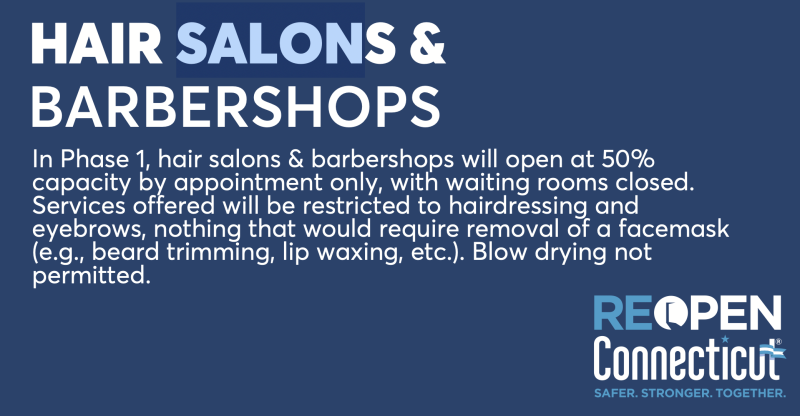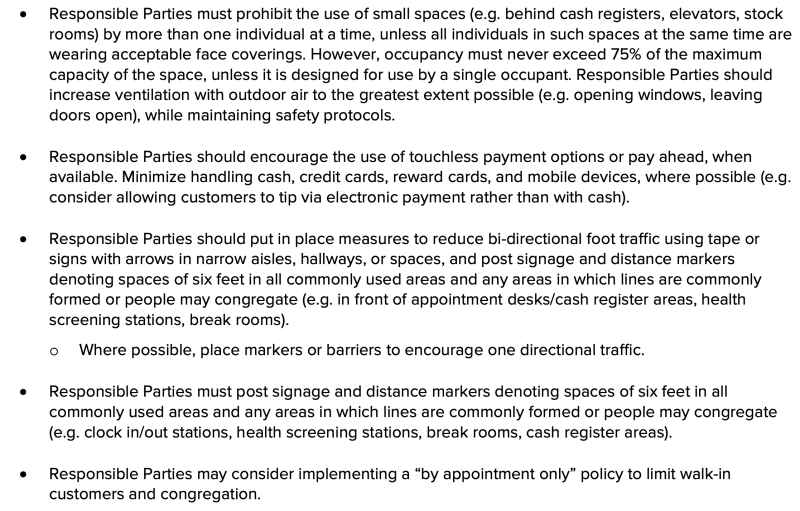When Haircuts Were Illegal
Unless we just decide to forget, historians will look back in astonishment.
- Healthcare spending declined in a pandemic.
- People were blocked from their houses of worship.
- Choirs couldn’t sing.
- Drones flew the skies to ferret out and report house parties.
- Rental cars were fumigated with something.
- Crossing a state line meant mandatory two week quarantines.
- Dentistry was largely banned.
- Forget elective surgeries. They were banned.
And for months, in most parts of the country, from mid-March to about June 2020 if not longer, getting a haircut was illegal. It was a result of disease panic for sure but more. Governments decided that they knew the risks better than people, and so would not allow people to make their own choices.
Multitudes of barbers and stylists sat at home while the hair of the people grew longer and longer.
Many friends of mine cut their own. Others found speakeasy barbers. One friend swore me to secrecy as he told a tale of a small barn in a remote place in New Jersey. He had heard from another friend to knock on the back door. He tried it and a lady appeared, said nothing, sat him down in a chair and cut. Five minutes later she said: $25. He left while making sure no one saw him.
Others asked family members to do the deed. As the Washington Examiner wrote at the time: “This virus will surely lead to plenty of unfortunate innovation in hair styles.”
Of course the truth is that this was not the virus doing this. It was the law. The law – or was it merely an enforced CDC recommendation? – required six feet of distance between all people. Stat and local governments declared haircuts nonessential. As a result, commercial haircuts were abolished de facto.
Unless you were a politician, who somehow managed to find a salon. When caught, they apologized, and kept their power. It was the same in the UK, where criminal penalties were applied even long after they became legal again.
Journalists who wrote about the fiasco – which also covered manicures and pedicures – had to change names to protect the guilty. For my own part, I managed to find a barber and whisper to friends about how to participate but I can recall the fear, the worry, the sneaking around, and the strangeness of it all.
Maybe it all seems silly now. I can assure you that it was not at the time.
Texas governor Greg Abbott developed a good reputation for opening the state earlier than others but the reality is that he was, at the time, brutal against salons.
“In an act of defiance against Gov. Greg Abbott’s continued shut down (sic) of barbershops and other businesses, two Republican lawmakers sat in a Houston-area salon on Tuesday while getting illegal haircuts,” one report said.
Rep. Steve Toth, from The Woodlands, and Rep. Briscoe Cain, from Deer Park, added fuel to the movement against state and locally mandated restrictions which are intended to slow the spread of COVID-19.
On Friday, a sliver of Texas businesses were allowed to reopen after Gov. Greg Abbott announced he would let Texas’ stay-at-home order expire. The multi-phase reopening plan currently allows some businesses — like retail stores, restaurants, movie theaters and malls — to reopen with limited capacity. But businesses including barbershops, hair salons, bars and gyms can’t reopen yet, because Abbott said a team of medical experts has advised that it is still unsafe.
A salon owner was sentenced to jail for 7 days…in Texas!
A Texas salon owner was sentenced to seven days in jail on Tuesday after refusing to shut down despite social distancing restrictions requiring her business remain closed amid the coronavirus outbreak.
Dallas Judge Eric Moyé held Salon À la Mode owner Shelley Luther in criminal and civil contempt of court for refusing to comply with a restraining order issued in late April, according to court documents. He also ordered the company to pay a fine of $500 for every day the salon violated the court’s mandate for the business to stay closed. Luther is planning to appeal the decision.
“The defiance of the Court’s Order was open, flagrant and intentional,” Moyé wrote. “The Defendants, although having been given an opportunity to do so, have expressed no contrition, remorse or regret for their contemptuous action.”
An article in Vox somehow managed to racialize the demand that salons open up. I still cannot follow the argument even though I’ve read the piece three times. It has something to do with the difference between types of hair and privilege and discrimination or something like that. I suspect that the thesis is that those who wanted haircuts were racist in some way.
This situation was unsustainable so states started opening salons but with crazy rules that made no sense at all. It was virus control made up on the spot. Check out this preposterous advisory from Connecticut.

No blow drying, since clearly that spreads covid all over and leads to mass death. Blowing covid everywhere! And 50% capacity was a classic move that discriminated against small shops in favor of large ones. The larger the shop, the more the stations, the more people could fit in under a 50% rule. Same was true for restaurants of course. It was a privilege for large businesses over smaller competitors.
True to form, the government of New York put out a 10-page advisory that struck me on reading that it was basically impossible to follow. Included here are the following:

Good luck finding out the science behind all this rigmarole. There never was any. Not one life was saved; at least no one has demonstrated that. And in the end, most everyone got Covid anyway. All it meant was three months or more of bad hair.
It would be worth investigating whether and to what extent these preposterous rules contributed to forcing governments to reopen after disastrous lockdowns.
Let us not forget those months when the haircut was illegal. When governments finally allowed them, it didn’t allow blow dryers and made customers follow arrows on the floor and use only “touchless” payment methods.
That’s pandemic control in a nutshell. What a disgrace this entire period was to science, rationality, human rights, and freedom.